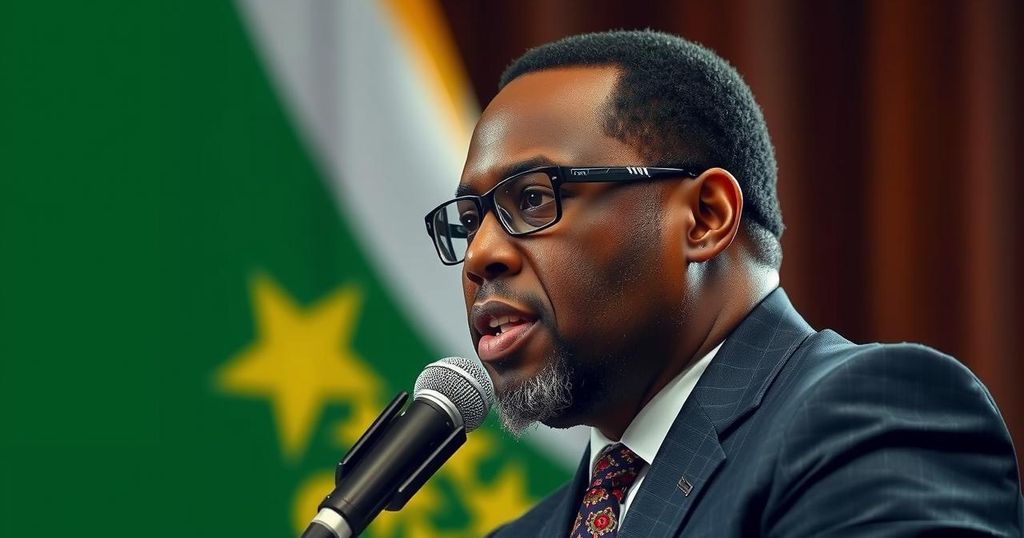The Supreme Court of Equatorial Guinea has acquitted Baltasar Engonga of all charges related to a sex scandal, citing lack of evidence and confirming consent from those involved in the released intimate videos. The case has prompted discussions on privacy rights and the treatment of women in the digital domain, with government officials advocating for stronger protections against such violations.
The Supreme Court of Equatorial Guinea has acquitted Baltasar Engonga, the former Director General of the National Financial Investigation Agency, of all charges in a highly publicized sex scandal. The court ruled there was insufficient evidence, affirming that all parties involved in the intimate videos were consenting adults. Medical examinations further validated Engonga’s innocence, showing no transmission of sexually transmitted infections.
As a result of the scandal, some husbands whose wives appeared in the leaked videos reportedly expressed gratitude to Engonga for uncovering issues within their marriages, prompting some to seek divorce. Engonga has indicated intentions to pursue legal action against those responsible for leaking the videos, which he described as a serious invasion of privacy that has caused significant distress to his family.
Previously arrested on charges of embezzlement and held in the infamous Black Beach prison, Engonga’s case has drawn considerable media attention due to the explicit nature of the leaked videos. Following the decision to dismiss the charges against him on November 4, the Equatorial Guinean government responded to the scandal, with the First Lady and Prime Minister advocating for stronger protections against violations of privacy and respect for women’s dignity in the digital landscape.
Furthermore, the Vice President has instructed telecommunications authorities to combat the distribution of such content, emphasizing the need for families to be shielded from the repercussions of Engonga’s scandal.
Equatorial Guinea has been embroiled in a sex scandal involving Baltasar Engonga, a prominent political figure and former head of the National Financial Investigation Agency. Engonga was captured in intimate videos with various women, including relatives of high-ranking officials, leading to a complex intersection of privacy rights, consent, and public scandal. The case has sparked broader discussions on media privacy, government accountability, and social conduct in the context of evolving digital technology, particularly concerning issues that affect women’s status in society.
In summary, the Supreme Court’s dismissal of charges against Baltasar Engonga highlights significant legal and social issues within Equatorial Guinea related to privacy, digital ethics, and the treatment of women in the media. The government’s reaction, particularly from the First Lady and Prime Minister, suggests an urgent call for policy reforms to protect citizens’ rights and preserve family integrity in the face of privacy breaches, setting the stage for potential legislative changes regarding digital content distribution.
Original Source: www.osundefender.com







